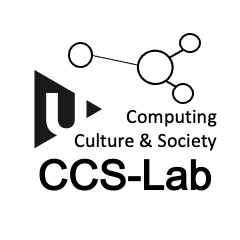Skip to content
TOME (The Origins of Modern Encyclopaedism: Launching Evolutionary Metaphorology)
- 2023/9-2025/8, funded by the Czech Ministry of Education, Youth and Sport (ERC-CZ scheme)
- PI Petr Pavlas (Institute of Philosophy of the Czech Academy of Sciences)
- CCS-Lab offers computational infrastructure
- ANNOTATION: This project proposes a pioneering study of early modern encyclopaedism from the radically new perspective of the cultural evolution of cognitive metaphors, or evolutionary metaphorology. The general aim is to gain a fundamentally new understanding of the phenomenon which made possible two important values crucial to the modern era’s social cohesion and cognitive resilience: universal education, and free access to scientific information. Using the advantages of both distant and close reading, TOME proposes a large-scale study of the semantic drift between the rise of the Reformation and the birth of the Enlightenment, at the same time focussing more tightly upon the socioculturally dramatic decade after the defeat of the Bohemian Revolt. Combining intellectual history with the approaches of metaphor studies, cultural attraction theory, distant reading, and corpus-assisted discourse analysis, TOME scrutinises theological, philosophical, and scientific books both written and printed between 1517 and 1716. Simultaneously, the cognitive metaphors manifested in a broader spectrum of texts written by theologians, philosophers, and scientists from 1620 to 1630 are subjected to a more detailed investigation, and their spatiotemporal and interlinguistic development is analysed. This enables the identification of patterns and turning points in the evolution of meanings which resulted in a true revolution in pedagogy and the philosophy of science, leading to the emergence of not only new educational curricula, institutions, textbooks and encyclopaedias, but also scientific journals, new science policies and conceptions, and new fields of study. The current unprecedented richness of public digital repositories, providing us with a gold mine of early modern scholarly texts, represents a timely opportunity for TOME’s enterprise. The ambition is to establish evolutionary metaphorology as a new field of study, transplantable from early modern intellectual history to other periods.
SDAM (Social Dynamics in the Ancient Mediterranean)
- 2019/9-2023/12, funded by the Aarhus University Research Foundation)
- PI Adéla Sobotková (Aarhus University)
- Vojtěch Kaše (CCS-Lab) as a partner at the University of West Bohemia
- ANNOTATION: This project aims to aggregate, parametrise, and synthesise primary datasets that inform the evolution of societies in the Ancient Mediterranean (ie. examine the links between social connectivity and complexity manifest in material and textual evidence). In the process, the team will develop a suite of digital approaches and tools, inspired by large-scale ecological projects like Ocean Health Index. The two mains outputs of this project will be (a) a comparative study of proxies for evolution of social complexity in the Ancient Mediterranean and (b) digital tools, workflows and processes that scale and that historians and archaeologists can use in their own research. In its digital aim, this project will deliver the next component of a digital ecosystem for ‘small-data’ domains like the humanities, namely research infrastructure for combining ‘messy’ and heterogeneous legacy data with ‘clean’ digitally born data, allowing for their streamlining and analysis in a collaborative environment. In its empirical mission, this project will evaluate existing hypotheses of Ancient Mediterranean dynamics by aggregating and synthesising available digital datasets.
CEMRAM (Cultural Evolution of Moralizing Religions in the Ancient Mediterranean: A Distant Reading Approach)
- 2020/1-2023/6, funded by the Czech Science Foundation
- PI Tomáš Glomb (Masaryk University), Co-PI Vojtěch Kaše (CCS-Lab)
- ANNOTATION: The “Cultural Evolution of Moralizing Religions in the Ancient Mediterranean” Project (CEMRAM) explores the question of whether the emergence of moralizing religions resulted from shifts in life-history strategies in response to the increase in economic prosperity. The project applies the methods of distant reading to analyze the spatial and temporal relationships between occurrences of moralizing religion motifs in digitized corpora of ancient texts and inscriptions in Greek and Latin on the one hand and the level of affluence based on socio-economic proxy data on the other.
DiRECT (Distant Reading of Early Christian Texts)
- 2018/3-2019/12, funded by the Research Foundation of the University of West Bohemia
- PI Vojtěch Kaše
- ANNOTATION: The DiRECT project evaluates applicability of selected methods of the so called distant reading from the area of digital humanities for a socio-cognitive interpretation of early Christian texts from the first three centuries CE in primary languages. By distant reading we mean the methods enabling to explore, analyze and visualize digitalized textual data while using the tools from the area of data mining, natural language processing or corpus linguistics. For humanities scholars, these methods enable to gain a bird’s-eye-view of the content and structure of studied texts or corpora, to compare the texts or corpora between themselves, and by this way in a controlled fashion to enrich scholarly insights gained through close reading of individual texts. While these methods are becoming quite widespread in literary studies, the attempts to use them in the study of historical processes are rather rare. However, early Christianity studies are especially promising for adoption of these methods, too, as the relevant textual data are already freely available in a machine readable form. The results of intended analyses – and of the publications drawing on them – might be (1) embedded into the contemporary vivid discussions in the area of early Christian studies, where they can enrich increasingly popular social scientific and cognitive approaches, (2) approached as thematization of an important topic from the theory and history of science perspective, representing number-one specialization of the home institution of the applicants.
